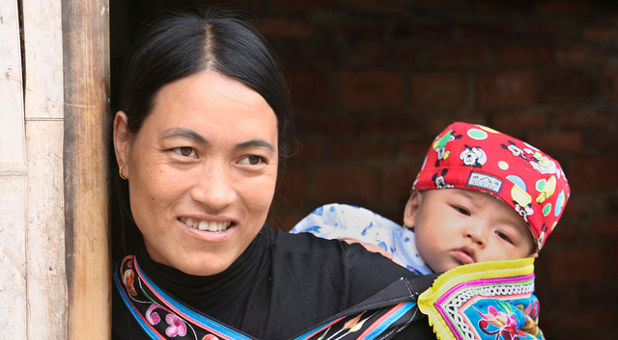China will ease family planning restrictions nationwide, the government said on Friday, allowing millions of families to have two children in the country’s most significant liberalization of its strict one-child policy in about three decades.
Couples in which one parent is an only child will now be able to have a second child, one of the highlights of a sweeping raft of reforms announced three days after the ruling Communist Party ended a meeting that mapped out policy for the next decade.
The plan to ease the policy was envisioned by the government about five years ago as officials worried that the strict controls were undermining economic growth and contributing to a rapidly aging population the country had no hope of supporting financially.
A growing number of scholars had long urged the government to reform the policy, introduced in the late 1970s to prevent population growth spiraling out of control, but now regarded by many experts as outdated and harmful to the economy.
While the easing of the controls will not have a substantial demographic impact in the world’s most populous nation, it could pave the way for the abolition of the policy.
“The demographic significance is minimal but the political significance is substantial,” said Wang Feng, a sociology professor at Fudan University specializing in China’s demographics, before the announcement.
“This is one of the most urgent policy changes that we’ve been awaiting for years. What this will mean is a very speedy abolishment of the one-child policy.”
In the 1980s, the government allowed rural families with a girl to have two children, Wang said. “Ever since the ’80s, there’s been nothing as clear as this,” he said.
Wang Guangzhou, a demographer from top government think-tank, the Chinese Academy of Social Sciences, estimated the new policy would affect 30 million women of child-bearing age In a country which has nearly 1.4 billion people.
Although it is known internationally as the one-child policy, China’s rules governing family planning are more complicated. Under current rules, urban couples are permitted a second child if both parents do not have siblings and rural couples are allowed to have two children if their first-born is a girl.
There are numerous other exceptions as well, including looser rules for ethnic minorities and allowing parents who are themselves only children to have two children at most.
Any couple violating the policy has to pay a large fine.
The one-child policy covers 63 percent of the country’s population and Beijing says it has averted 400 million births since 1980.
Many analysts say the one-child policy has shrunk China’s labor pool, hurting economic growth. For the first time in decades the working age population fell in 2012, and China could be the first country in the world to get old before it gets rich.
“It’s not a huge reform, there have been small adjustments all along,” said Liang Zhongtang, a demographer from the Shanghai Academy of Social Sciences.
“I am just worried that they will make no further adjustments for a very long time after they’ve made this one.”
Tian Xueyuan, a retired family planning scholar who helped draft the original one-child policy, told Reuters the rules were only meant to last about 25 years.
“They could have implemented this policy several years ago,” he said.
Numerous studies have shown the detrimental effects of the one-child policy. China’s labor force, at about 930 million, will start declining in 2025 at a rate of about 10 million a year, projections show. Meanwhile, its elderly population will hit 360 million by 2030, from about 200 million today.
A skewed gender ratio is another consequence.
Like most Asian nations, China has a traditional bias for sons. Many families abort female fetuses or abandon baby girls to ensure their only child is a son. About 118 boys are born for every 100 girls, against a global average of 103-107 boys per 100 girls.
Family planning officials have been known to compel women to have abortions to meet birth-rate targets.
Still, the adjustment is likely to be popular.
Zhang Yuanyuan, who has a 1-year-old son, said she had already decided to have one more child before the new policy and was willing to pay the fine.
“We are very, very happy about this new policy,” Zhang told Reuters.
Editing by Raju Gopalakrishnan
© 2013 Thomson Reuters. All rights reserved.
See an error in this article?
To contact us or to submit an article






















